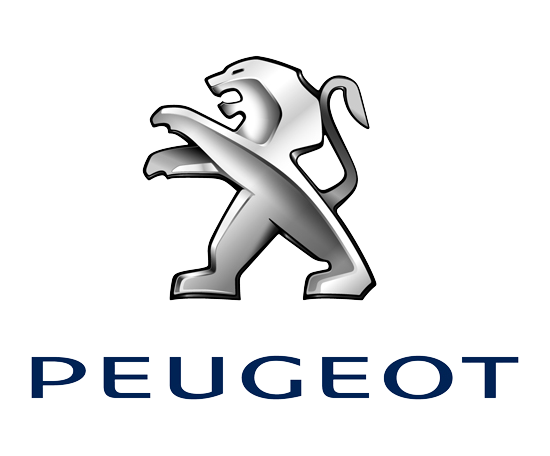- Unlocking the Future: How Quantum AI Solves Complex Challenges for Businesses
- Understanding Quantum Computing and its Role in AI
- The Basics of Quantum AI
- Applications in Various Industries
- Challenges and Considerations in Quantum AI Implementation
- Developing Quantum-Ready Strategies
- The Role of Collaborative Research and Development
- Ethical Implications of Quantum AI
- Regulatory Considerations
- Fostering an Environment of Responsible Innovation
- Conclusion: Embracing the Quantum Future
Unlocking the Future: How Quantum AI Solves Complex Challenges for Businesses
In recent years, the technological landscape has dramatically changed with the advent of artificial intelligence and quantum computing. One of the most exciting intersections of these two fields is known as Quantum AI. This groundbreaking technology combines the immense computational powers of quantum computers with the capabilities of artificial intelligence to address complex challenges that traditional computing cannot efficiently solve. As businesses strive to remain competitive in a rapidly evolving marketplace, leveraging Quantum AI could very well be the key to unlocking new avenues of growth and innovation.
The potential applications are vast and varied, ranging from optimization problems to machine learning algorithms that can analyze data at unprecedented speeds. With the introduction of quantum algorithms, organizations can expect not only faster processing times but also enhanced problem-solving capabilities. The importance of understanding how these technologies can be implemented in real-world applications cannot be overstated; more than ever, businesses need to be prepared to harness these innovations for their future strategies.
As we delve deeper into this article, we will explore how Quantum AI is transforming sectors such as finance, healthcare, logistics, and cybersecurity. We will also discuss the challenges associated with adopting quantum technologies and the implications they have for businesses in the near future. By the end of this exploration, it should be clear that Quantum AI is not just a buzzword; it represents a significant shift in how problems can be approached and solved, ultimately leading to a smarter, more efficient business landscape.
Understanding Quantum Computing and its Role in AI
To fully appreciate the impact of Quantum AI, it is essential to first understand the principles of quantum computing itself. Unlike classical computers that process information in binary (using bits represented by 0s and 1s), quantum computers operate using quantum bits or qubits. These qubits can exist in multiple states at once due to the principles of superposition and entanglement, significantly boosting potential computational power. This means that, theoretically, quantum machines can solve problems that would take traditional computers thousands of years in just a matter of minutes.
The synergy between quantum computing and artificial intelligence lies in the speed and scale at which quantum computers can analyze vast datasets, leading to faster learning processes for AI systems. For instance, when training machine learning models, the efficiency of data processing can significantly enhance predictions and recommendations, thereby improving decision-making. This section’s objective is to create awareness about the foundational technology that powers Quantum AI.
| Processing Speed | Linear | Exponential |
| Data Storage | Bits | Qubits |
| Problem Solving | Sequential | Simultaneous |
The implications of these differences are enormous. With regards to Quantum AI, the ability to quickly process complex algorithms means that businesses can uncover hidden insights that were previously unattainable. Moreover, fields such as optimization, pattern recognition, and predictive analytics will experience transformative effects from incorporating quantum technologies. Recognizing these capabilities enables organizations to remain proactive in their strategic planning.
The Basics of Quantum AI
At its core, Quantum AI bridges the gap between quantum physics and artificial intelligence, resulting in novel approaches to problem-solving. Advanced algorithms specifically designed for quantum computers open the door for new methodologies in machine learning, image processing, and even natural language processing.
These breakthroughs allow businesses to not only optimize their operations but also create personalized and contextual customer experiences. For instance, quantum algorithmscan analyze customer data and preferences faster than ever, enabling companies to more efficiently tailor marketing efforts. Such advancements promise a transformative impact on customer relations and engagement.
Applications in Various Industries
The applications of Quantum AI extend across multiple industries. In finance, quantum algorithms can optimize trading strategies and manage risks associated with market volatility. In healthcare, quantum computing can aid in drug discovery by simulating molecular interactions at unprecedented scales. Logistics sectors benefit from quantum-enhanced route optimization algorithms, which lead to reduced operational costs.
Furthermore, the cybersecurity landscape can leverage quantum AI for developing advanced threat detection systems, thus enhancing data security protocols. With these innovative applications emerging daily, organizations must stay ahead of the curve to ensure they are utilizing the best technologies available.
Challenges and Considerations in Quantum AI Implementation
Despite the exciting potential of Quantum AI, there are several challenges that businesses face when attempting to implement this technology. Firstly, there is a steep learning curve associated with quantum computing, and many organizations lack the necessary expertise in-house. As a result, companies may need to invest significantly in training their workforce or partner with external experts in the field.
Furthermore, the current state of quantum hardware is still developing, and many systems are not yet reliable for commercial use. This lack of stability leads to additional hurdles when trying to deploy quantum solutions in business environments. Companies must carefully assess their readiness and capability to integrate such technologies before moving forward.
Developing Quantum-Ready Strategies
To successfully harness the power of Quantum AI, businesses need to develop comprehensive strategies that account for both the capabilities of quantum computing and their specific operational needs. This entails a review of existing processes to identify potential areas for optimization and improvement through quantum technologies.
Additionally, fostering a culture of innovation within the organization can pave the way for successful adoption. Encouraging collaboration within teams can lead to innovative solutions and fresh ideas for utilizing Quantum AI effectively. Crafting a roadmap towards quantum readiness will also help organizations align their goals with evolving technologies.
The Role of Collaborative Research and Development
Collaborative research and development partnerships can greatly assist organizations in addressing the challenges associated with Quantum AI. By working alongside academic institutions or tech firms specializing in quantum computing, companies can access valuable resources and expertise, accelerating their journey towards implementation.
Moreover, these partnerships can stimulate innovation by fostering an environment of shared knowledge. Collaborative efforts can lead to advanced research and breakthroughs that benefit not just individual organizations but also the industry as a whole.
| Training and Education | Builds internal expertise |
| Collaboration | Access to specialized knowledge |
| Research Investments | Stimulates innovation |
Ethical Implications of Quantum AI
As with any powerful technology, Quantum AI presents ethical considerations that cannot be overlooked. The speed and efficiency provided by quantum algorithms pose questions regarding data privacy and security. Ensuring that personal information is handled appropriately is crucial for building trust among consumers.
Furthermore, the potential for algorithmic bias exists when artificial intelligence processes decisions based on historical data. Companies must implement mechanisms to identify and correct biases in their models, ensuring fairness and transparency in AI applications. A proactive approach to addressing these ethical issues will cultivate a more responsible adoption of quantum technologies.
Regulatory Considerations
As businesses adopt Quantum AI, navigating the ever-evolving regulatory landscape is imperative. Authorities are beginning to recognize the importance of establishing guidelines for emerging technologies, including quantum computing. Organizations must remain compliant with these regulations to avoid potential legal repercussions.
In particular, companies should pay attention to laws governing data protection, algorithmic accountability, and consumers’ rights. Forward-thinking businesses will adopt practices that prioritize compliance and transparency to build consumer trust while harnessing the advantages of quantum technologies.
Fostering an Environment of Responsible Innovation
In conclusion, striking a balance between technological advancement and ethical responsibility is essential. As Quantum AI reshapes various industries, organizations must remain committed to fostering an environment of responsible innovation. This means prioritizing ethical considerations alongside the pursuit of efficiency and optimization.
Encouraging open dialogues about the implications of Quantum AI will not only benefit organizational culture but will also contribute positively to society as a whole. In this fast-paced digital age, businesses that prioritize responsible adoption of technologies will undoubtedly be better positioned for success.
Conclusion: Embracing the Quantum Future
The convergence of quantum computing and artificial intelligence heralds a new era of capabilities for businesses. By embracing Quantum AI, organizations can unlock innovative solutions to complex challenges that were previously insurmountable. The combination of speed, efficiency, and enhanced problem-solving abilities can ultimately lead to a more competitive marketplace.
As we progress further into the age of digital transformations, staying informed and prepared to adopt new technologies is imperative. Companies willing to invest in gaining expertise, fostering innovation, and remaining ethically responsible will thrive in a future dominated by Quantum AI.


















